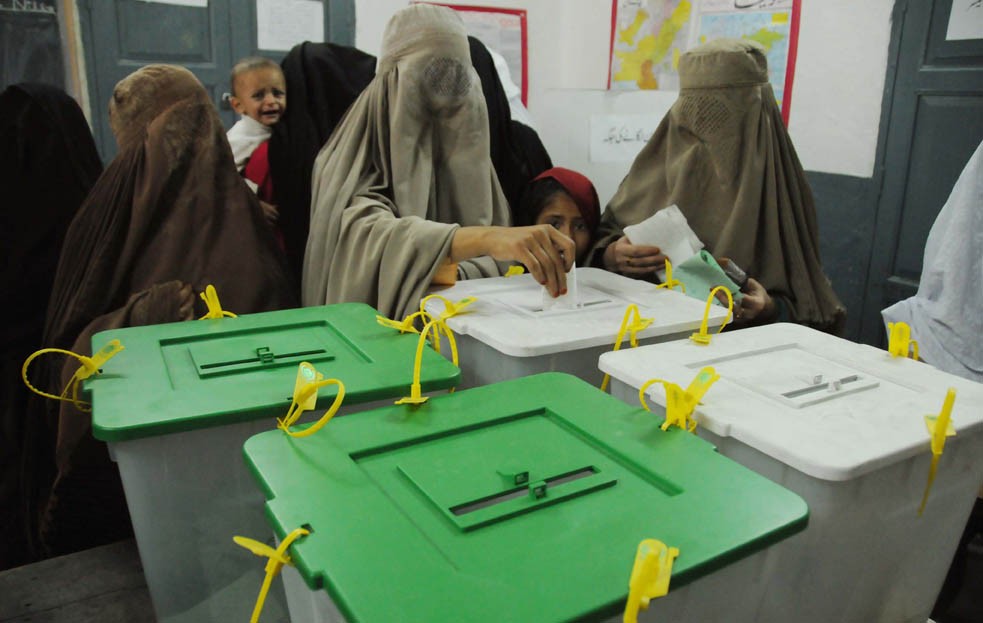
Manifestoes of political parties need proper input from a broader stakeholder community and threadbare debate by the constituents for inclusive and sustainable development

A key expectation from all political parties prior to general elections is timely formulation of detailed manifestos which outline the party’s vision and commitment to economic reform process among other issues. Unfortunately, we have noticed in the past that these manifestos are received with a significant delay and thereby cannot undergo a process of debate by the constituents or broader stakeholder community.
Assuming that political parties require support towards evidence-based manifesto preparation, a group of think tanks working on socio-economic reform issues recently undertook countrywide consultations to meet and ask the business community regarding specific reforms they would like to see for inclusive and sustainable development in the country.
While there was traditional advice on priorities such as revival of growth in agriculture and industrial sectors, emphasis was also laid on some areas which have received less coverage in the past manifestos such as the promotion of social enterprises and women entrepreneurship in Pakistan. To start with there is a general consensus that commodity producing sectors need to see a quick revival and thereafter sustained growth. This is also essential from a job-creation perspective.
Under these sectoral priorities, it was highlighted that for agriculture (including livestock sub-sector) key reforms should include: targeting of all forms of subsidies only towards micro and small-scale farmers; reducing burden of indirect taxes on farm inputs and intermediate goods; increasing budgetary support for improving irrigation, farmer’s access to markets and water; and removal of trade barriers in addition to allowing zero-rating of all imported agricultural machinery and related inputs.
Similarly, in the case of manufacturing sector, which has seen some recovery on the back of improved energy outlook and investments under China-Pakistan Economic Corridor (CPEC), it was suggested by our respondents that a careful evaluation is required how the tax regime pursued by Federal Board of Revenue at the behest of Ministry of Finance led to Pakistan’s weakening business climate. The country has seen deterioration in key indicators under the Doing Business Index. Second, it may be noted that there is no mechanism in place whereby federal and provincial fiscal incentives approved for manufacturing sector could be coordinated and monitored to see if these are actually reaching the beneficiaries. The assessment of regulatory constraints to exports at the federal and provincial level is also missing.
The exporters have informed that Pakistan’s weak logistics infrastructure in fact leads to increased cost of doing business. This requires a concerted effort to improve processes under customs, transport-related infrastructure for merchandise goods, and efficient tracking and shipping mechanism for consignments.
While the export of goods is struggling due to known factors, there hasn’t been any major push to promote services exports of Pakistan. The Service Export Development Strategy should be revisited and advice may be requested from the private sector. The Trade Development Authority of Pakistan (TDAP) can ensure the presence of Pakistani services sector exporters in international services trade exhibitions.
A long term approach will be required to ensure that sustained investment is attracted and directed towards export-oriented industries in Pakistan. For this to happen, a lot more deregulation of markets is required including reduction in compliance costs faced by startups at the time of registration, tax payments, dealing with environment, labour and municipal departments. It is recommended that Competition Commission of Pakistan may conduct a regulatory impact assessment, in the light of which reforms may be initiated.
Apart from the export-oriented sectors, we have also been informed regarding interest of local and foreign investors in Pakistan’s energy sector. For this potential investment to materialise, future investors would like to see an end to hidden and cross subsidies in energy sector, more certainty of receivables form clients all over the country, strengthened autonomy of all regulators in this sector and more expanded fiscal measures if cleaner forms of energy have to be promoted.
While the provincial economies across the country are putting in place their own mechanisms for revenue mobilisation, it is important that businesses should not face double taxation and multiple tax-related audits by various tax authorities in different parts of the country. It was proposed that a) single tax return should be filed once all revenue collection bodies are integrated through appropriate web-based technologies, and b) collection of tax payment should be the sole task of a single collection company. The collected amount can then be transferred to the relevant provincial revenue bodies by this central collection company.
One of the greatest opportunity for Pakistan will be to actively encourage young and enterprising women to pursue self-employment. Our discussions with Women Chambers of Commerce and Industry across the country inform regarding key barriers to their participation in business. There is a need to improve access to finance for women-led startups. Greater access to information and networking may be supported by relevant government organisations. TDAP will need to ensure greater participation of women in foreign and local exhibitions so that exports of women-led enterprises can be showcased. All business and export promotion bodies including testing and certification offices will need to be more sensitive to the requirements of women. This is possible through timely capacity-building of such offices which in turn could improve their procedures, skills and attitudes to better respond to women-led enterprises.
Finally, for promotion of business in disadvantaged provinces and regions, a more attractive investment promotion package will be required. Similarly, the concerns of Baloch traders having ties with both Afghanistan and Iran need attention. Their business suffers due to uncertainty of payment channels, lack of insurance facilities, frequent changes in tariffs on imports and customs procedures.
This is, of course, not an exhaustive list. However, one hopes that in the coming days our political parties will meet the business community at the grass-root level, get to know their challenges and then firm up their promises as part of the election manifestos.